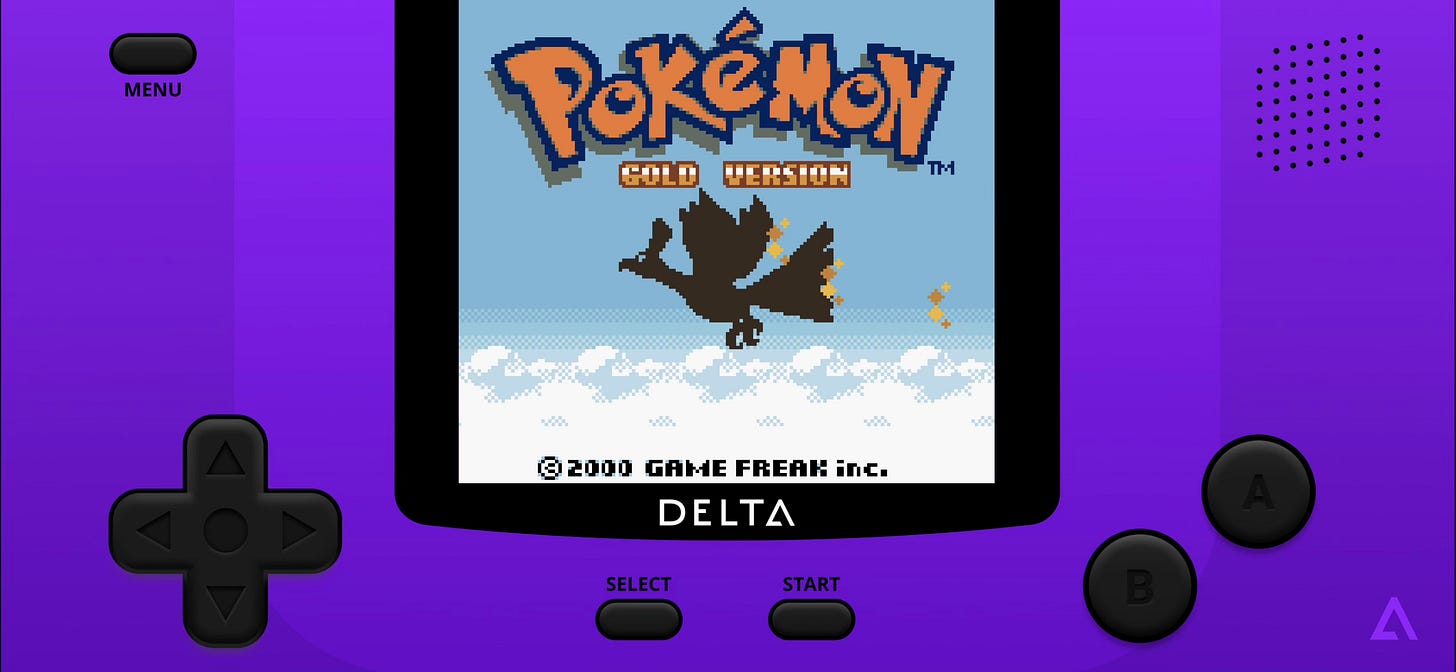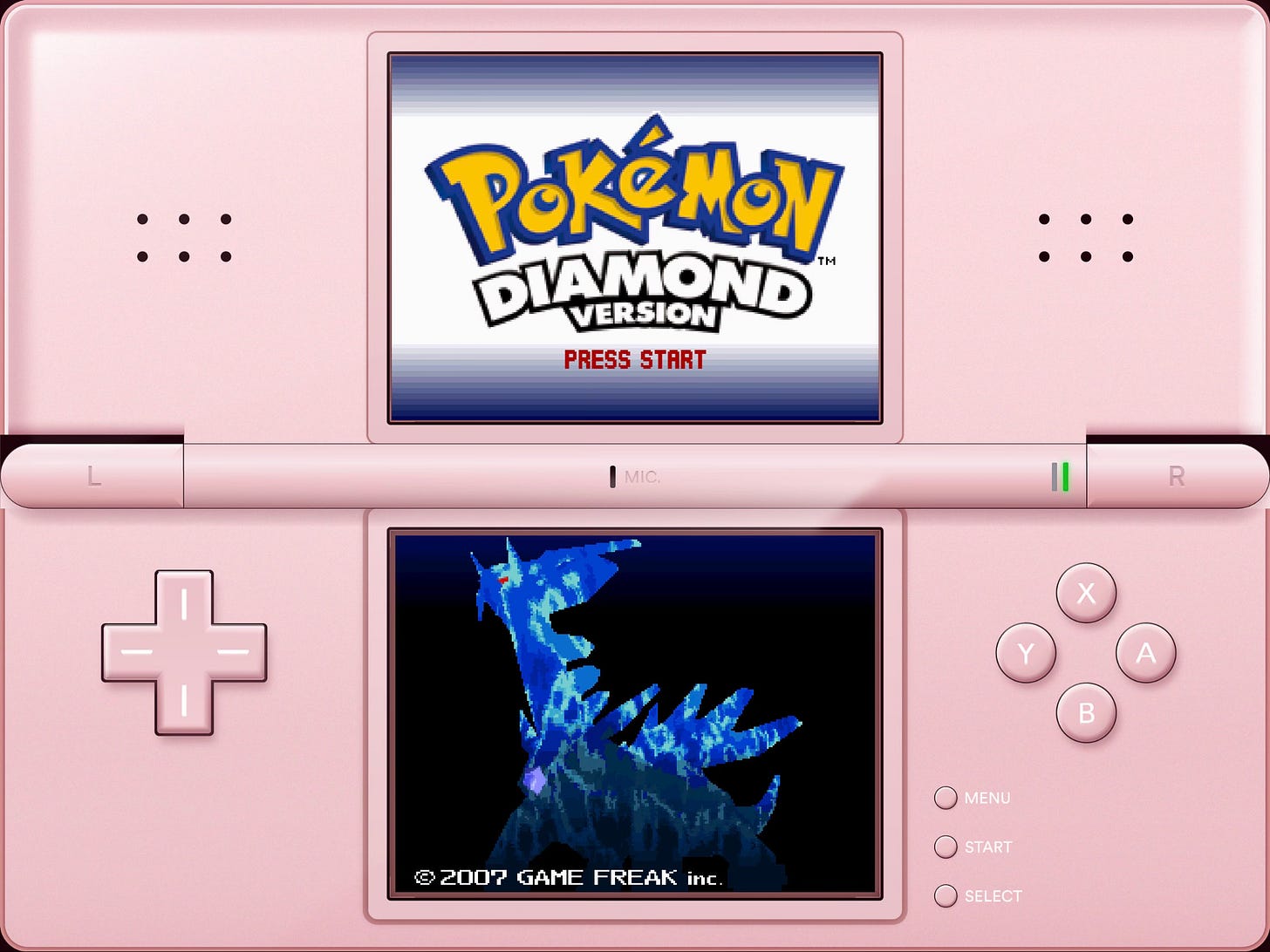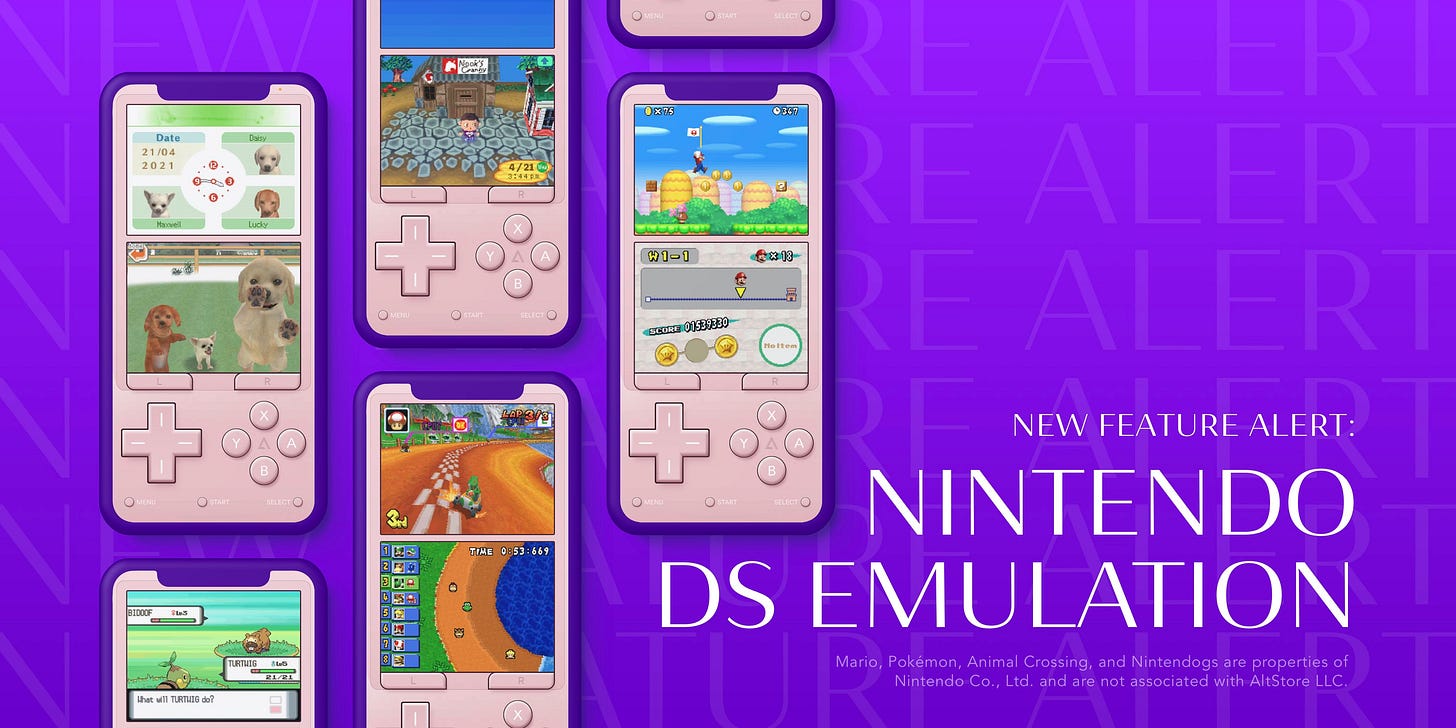The actual playing of games has been on the light side this week, but there has been one topic prevailing throughout the news cycle the past couple of weeks - emulation.
Yuzu Meets Nintendo
Back in March Nintendo sued Tropic Haze, the developers of the Switch emulator Yuzu, arguing that the team was facilitating piracy at scale by providing instructions on how to get copies of Switch games and distributing keys to bypass encryption to run said games in the emulator. If you’ve seen videos of The Legend of Zelda: Tears of the Kingdom running in 4K on a Steam Deck, Yuzu might have had something to do with it. The result: Tropic Haze agreed to pay Nintendo $2.4M and essentially hand over all work and documents related to Yuzu.
I’m no lawyer, so I can’t speak to the legal specifics, but emulators/emulation have always seemed to be in a weird legal gray area. Here’s my simplified, likely 40% inaccurate understanding based off of reading through wiki pages and skimming a handful of case results: emulators themselves aren’t illegal as long as they are not directly copying code used within the original hardware’s BIOS (kind of like the middleman between the OS and hardware), but the emulation and distribution of games and their underlying code is illegal.
In practice this has meant that emulation has lived on in the shadows. Seemingly everyone knows that it happens out there somewhere, but as long as it isn’t getting too much attention and having a large direct impact on the respective companies bottom line there aren’t typically headlines written about it. Yuzu allowing gamers to attain Switch games that they could theoretically buy at Target is one of the main reasons Nintendo was driven to go after it vociferously.
Emulation Meets Apple
While that was enough to cause a stir for a couple weeks, the conversation experienced yet another inflection point just a few days ago with the introduction of emulation on the iPhone. Apple updated their App Review Guidelines (see section 4.7) a couple of weeks ago to allow “retro game console emulator apps” in the App Store. Soon after, we saw apps added and then removed for copyright issues or out of fear of retaliation. But one app has risen above the fray, Delta.
The app allows you to load up and play your game files for NES, SNES, Game Boy, Game Boy Advance, Nintendo 64, and Nintendo DS. You know, like an emulator. But what makes this app stand out is its quality and how well suited it is to the iOS ecosystem. It has native features like haptic feedback, iCloud, and even Airplay. It also supports bluetooth controllers, local multiplayer, syncing of saves across devices, cheats, and controller skins.
This level of polish is because Delta has actually been in development for years, the first version was released back in 2019. Developer Riley Tetsut has been doing this kind of work since he was in high school and it shows. Regardless of your stance on emulation, it’s a quality product and Riley deserves all of the attention they are getting for their work.
Although it’s not something I plan to do often, it’s crazy to be able to use a DualSense controller to play Pokémon Yellow on an Apple TV via Airplay on an iPhone 13 mini. What even is that sentence?
Apple Meets Nintendo?
There are still a couple important questions to be answered. What exactly does Apple mean by “retro” in their guidelines? I don’t think there are mixed feelings about calling the NES retro, but what about the Xbox 360 or Wii? Those consoles are nearly 20 years old, but a lot of properties introduced in that era are still being repackaged and resold via digital stores or remasters. I believe that Apple is being intentionally vague here to help keep their hands clean should this cause any dustup. In the guidelines, they also make sure to callout it is the developer’s responsibility to ensure the app complies with “all applicable laws”. This reads as them attempting to stay at arm’s length from the repercussions of this move while trying to hopefully diminish any interest their customers may have in the third-party app stores they’ve been forced to allow in the EU.
Lastly, what happens when Apple’s platform rules run head first into Nintendo’s feelings about how their IP is being represented and used? These emulators are mostly tailored to retro games, but Nintendo does have a host of older titles to play as incentive for subscribers to their Nintendo Switch Online service. As we’ve already seen, Nintendo isn’t afraid to go after a threat to their bottom line.
However, this could also be an opportunity to bring those titles to the platforms customers want to play them on. Delta topping the App Store charts and all the screenshots I’m seeing on social media show that people just want to play Pokémon on their phone. Why not finally give that to them? Historically, the company has been hesitant, for I think fair reasons, to make popular titles available on non-Nintendo mobile devices - instead opting to deliver off-shoots like Super Mario Run or Animal Crossing: Pocket Camp. But at the end of the day how long can the company fend off shareholders when there’s money on the table? Feels like everyone is walking on a tightrope right now, and eventually someone is bound to lose their footing.




